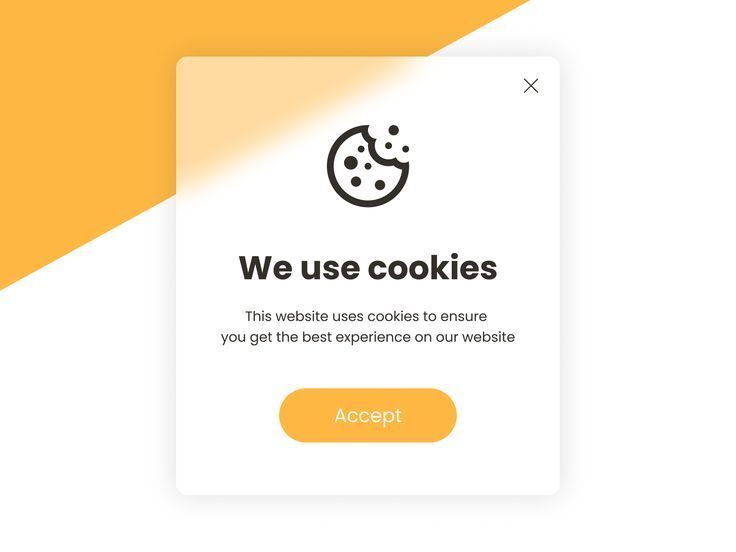Understanding Web Cookies: Internet Essential Guide for Everyday User

Speaking of the mysteries of the nets, web cookies are one of the most misinterpreted factors in the life of an Internet user. It is common to be presented with requests for permission to store cookies on a website, but what are these cookies, and why should they be important? Here is the need-to-know guide on what web cookies are, how they work, why they’re used, the advantages and disadvantages of implementing cookies, and some privacy issues.
What Are Web Cookies?
A web or HTTP cookie is a small data file or string of text stored in your device through a web browser when you open a particular site. These are files stored within a web browser that helps to track, manage and store information about users’ interactions with a website. In simple terms, cookies hold the user’s identity and their preferences so that the website can recognize users and facilitate easier use.
Types of Cookies
There are several types of cookies, each serving different purposes:
- Session Cookies
They are scriptural ones which only remain on your device for a certain time before they are deleted. They are mainly employed to monitor users’ behaviour using their computer during a single session such as when completing a shopping cart application with several products.
- Persistent Cookies
There are two types of cookies, namely: temporary cookies and persistent cookies are stored in your device after you close your browser. These cookies are used for storing the login name, locations or any other preferences that a site uses to recognize the users.
- First-Party Cookies
First-party cookies are placed by the website which a person is currently visiting. They are frequently employed to recall preferences and enhance optics for the specific site which it is used in.
- Third-Party Cookies
These are developed by domains apart from the one you are browsing with your web browser. Third-party cookies are most commonly associated with web advertising and most will be able to monitor your activity across the array of sites you visit.
- Secure Cookies
Secure cookies are only passed within HTTPS connections, which guarantee that the data stored in the cookies is secure when in transit.
- HTTP-Only Cookies
JavaScript cannot access these cookies that makes them less vulnerable to malicious scripts. These are often applied on storing session tokens.
Why Do Websites Use Cookies?
An important role in achieving a comfortable and individualised web experience belongs to Cookies. Here are some key reasons websites use them:
- User Authentication
People are logged in to websites and cookies contain the login details for that website while users move from page to another so that they do not log out.
- Personalization
It allows websites to remember things like language preference and theme of a website or even a particular content that may suit them.
- Shopping Carts
In e-commerce, cookies are used in ensuring that the items a person puts in the shopping cart remain intact as he or she continues browsing the site.
- Analytics
Cookies contain information on users’ activity profile, including the Web pages visited and the time spent on each, available to the Web site owners.
- Advertising
Cookies for interest based advertising makes it possible to track users’ interests. They use them to send messages of related ads targeting the users on the basis of their previous activities, increasing the probability of the users to be interested.
Benefits of Web Cookies
Things such as cookies are not evil. Here are some ways they enhance the online experience:
- Improved User Experience: It also reminds users that by maintaining such records, a Web site can make an interaction sequence easier and more friendly.
- Efficient Browsing: Some of the things that cookies contain are the usernames and passwords that you use to log in and not enter again every time you visit.
- Enhanced Analytics: In tracking the user interactions it is possible for webmasters to guide content and at large enhance the website execution.
Some of the common privacy concerns include cookies.
People are fond of using cookies while it may have significant risks as well. Here are some key concerns:
- Tracking Across Sites: Third-party cookies can track users across multiple sites and as a result maintain a clearTable of users’ usage pattern.
- Data Vulnerability: Cookies contain personal details kept in a format that can be retrieved when between moments, if not shielded from unauthorised parties.
- Privacy Regulations: Regulations including GDPR and CCPA call for the declaration of cookies by the website and obtaining of a user’s consent in the process.
Managing Cookies: How to Take Control
It is very important to note that the majority of the contemporary browsers offer users all ways to manage cookies, that is why one has an opportunity to decide what should be stored and shared. Here are some tips:
- Adjust Browser Settings
There are choices within browsers such as Chrome, Firefox, and Safari where third-party cookies can be blocked, where cookies can be deleted after a session, or where cookies cannot be used anywhere at all.
- Use Privacy-Focused Browsers
There are browsers that were created with the focus on privacy and they have tools to prevent tracker and restrict cookies.
- Clear Cookies Regularly
If you are worried about your privacy then ensure that cookies are deleted often. That can lock you out of a website, change given preferences, or even log the user out of their account.
- Install Browser Extensions
You can consider using Privacy Badger for cookie tracking prevention and uBlock Origin for setting rules of what websites can even know about you.
The Future of Cookies: Toward the Privacy-Oriented Solutions
With increasing focus on privacy, there is a shift in the internet world towards other options than the cookie. By now, informed and successful techniques such as Federated Learning of Cohorts (FLoC), which Google is transitioning to Topics API), wants to bring relevant advertisements without tracking people . Moreover, many sites are going to shift from the third-party cookies and instead are implementing pixel-less tracking techniques along with server-side conversions and first-party data.
In Summary
Bespoke to the importance of internet cookies in influencing its interaction with the web, has preferences and advertisements among its functions. They are beneficial in many ways, but they are also in themselves a cause for data privacy issues that led to new laws and technological advancements. Users themselves can significantly enhance their experience on the web with improved security by conscious understanding in use of cookies and how they function.
When you encounter the next cookie consent ad, you’d be better positioned to understand what the actual risks are and you’d be able to make a better decision for yourself.


Thank you for sharing this great guide on web cookies! It effectively explains the types, advantages, and privacy concerns associated with cookies, as well as provides helpful advice on how to manage cookies and be aware of privacy regulations and new technologies such as FLoC.